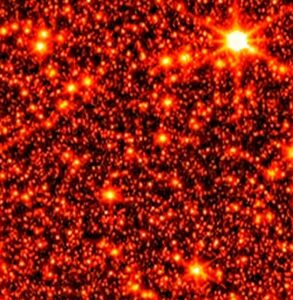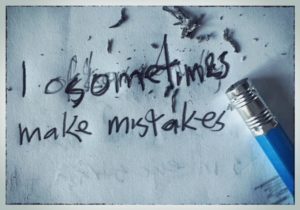The health crisis we continue to suffer through is at
best inconsistent, and at worst a dangerous descent
into a system systematically infected by political
opportunists and fully-fledged false charm.
The health crisis we continue to suffer through is at
best inconsistent, and at worst a dangerous descent
into a system systematically infected by political
opportunists and fully-fledged false charm.
uncertainty comes with change
in the weather
whether you know it
or not
the coming rain
impending pain
all part of this life as we feel it
as we see it
as we believe it to be
we seek shelter
relief from the constant heat and humidity
of our days
exorbitant excess
we feel only regret
an imbalance
if we have time
we seek comfort
if only in our mind
it is only uncertainty
all in all a probability
if we can live with that
we can curb our expectations
whether we know it
or not
© 2022 j.g. lewis
 Of course we look up with wonder, but as we do so we neglect to see ahead of us.
Of course we look up with wonder, but as we do so we neglect to see ahead of us.
The recent images from the James Webb Telescope have provided us with vibrant views of distant heavens never seen before (and not possible with the naked eye). Yes, scenes millions of light years behind us captivate our imagination. The pretty pictures distract us from our earthly concerns.
This planet is heating up. We are, right now, experiencing unprecedented climate change; more than we know and much more than some people will admit.
When we take into account how much money governments spend on space exploration we have to question how much good that revenue could be doing right here on Earth?
For example, The United States alone has spent more than $200 billion on the Space Shuttle program and another $50 billion on the International Space Station. Since its creation in 1958, right through to 2018, NASA spent almost one trillion inflation-adjusted dollars.
That figure, with capital “T”, does not account for monies spent by other governments throughout the world.
Canada, alone, spent $110 million to develop the Canadarm; a device best known for capturing, repairing, and deploying satellites, missions to the Hubble Space Telescope, and docking the space shuttle to the Russian Mir Space Station. Millions more was spent developing the Canadarm 2; a bigger, smarter version of its predecessor.
I’m most certain further Google searches would show how much more money, globally, was spent to find out more about the universes beyond. With each search I would question its value to humanity.
Whether we talk about millions, billions or trillions, we have to ask ourselves about the good those dollars could do to eradicate poverty or homelessness, or sharply reduce the toxic emissions destroying our atmosphere?
I, myself, have spent countless hours on many days throughout my life simply staring up in awe at clouds, the stars, constellations, and each phase of the moon and how it reacts to, and with, the light of the Sun I always believed was central to our existence. My thoughts were always full of wonder. Why are we here? Where did we come from? What else is out there?
The recent photographs confirm there is far more out there than some of us ever imagined, but we are so fascinated by the sights thousands of light years away that we lose perspective of our earthy concerns.
We have such a limited view of our future that we can’t even answer ourselves when we ask how much time we have to enjoy all that surrounds us?
We can continue to marvel at the real proof in the images of galaxies and heavenly bodies beyond our imagination — and look back historically to the advancements in space exploration — but it seems we can’t see what is ahead.
Or we don’t want to. Imagine that.
© 2022 j.g. lewis
 Often, occasionally, sporadically,
Often, occasionally, sporadically,
even spontaneously,
I make mistakes.
They happen naturally:
a missed word or apostrophe,
my mind gets moving and
I fail to see the errs of my ways,
or errors throughout the day.
It is, or was, or has been
when I write or what I say.
Incidentally or accidentally,
it goes without saying,
but the fact remains
I make mistakes.
Every day.
We learn from our mishaps, or
should anyway, we try to
improve and continue
to count the ways. What we do
and how we behave
counts for a lot.
My eraser rubbed raw
by attempts and change,
I continue to make mistakes.
Forgive me please when
my thoughts go amiss, and
remember I am human amidst
this confusion or corruption
we all experience.
I make mistakes,
I may fail or fall,
yet remain myself, flaws and all.
© 2018 j.g. lewis
 So much of my creativity is now based in technology.
So much of my creativity is now based in technology.
I have, over the past month, updated all of the technology I use with any frequency, replacing first my mobile device, then my primary computer, and finally my camera.
It was time.
Technology: you can’t live with it and you can’t live without it.
My primary computer was almost 15 years old – my digital camera is even older – and has served me well. When I purchased my 17” Apple MacBook Pro, it was state-of-the art with as much storage and memory as you could get at the time.
The laptop was well–traveled and well used.
Slowly, the 17” wonder began to loose battery power and performance. A few years back I added a smaller, more efficient, MacBook that I use solely for writing while I tried to get my mainstay computer to last a little longer. I had become accustomed to some of the software and its capabilities, especially on the photography side.
I left the newspaper industry just as digital photography was coming into our newsroom. At that time, we were actually scanning 35 mm film negatives, just before the entire production of our daily broadsheet abruptly shifted to digital.
My personal change to digital photography took a little longer. I purchased a digital camera body that would work with the lenses I already owned. I took a course to learn how to use my digital software (becoming Apple certified) before Apply made the decision to stop producing (then stop supporting) its Aperture software. I’ve been using Aperture as long as I can and, truly, cannot use it much longer.
Changes in digital photography – I refuse to call it “advancement” – is happening almost as quickly as it is with personal computers.
Advancements with cameras are such that Canon, in its literature, refers to them now as an “image capturing device”.
To me, it is just a camera.
I’m not one for drastic change. I function better when I have time to consider anything, time to get to know something, and time to make up my mind for myself.
As we all know, technology doesn’t allow that time.